
Home | Card Index | | | |
 Home | Card Index | | | | |
Eman Robitschek to Georg Konrad Robitschek - April 1, 1926Transcription and translation by Werner Sepper. |
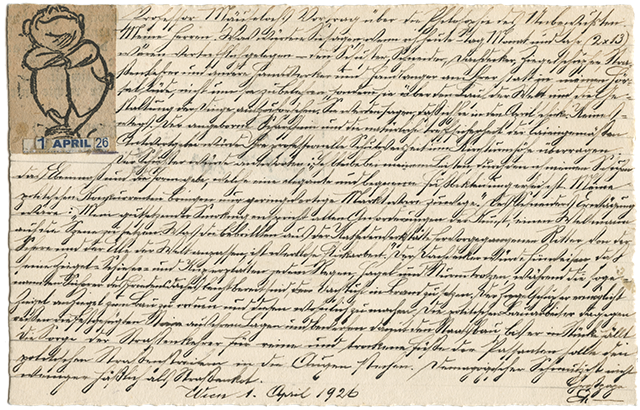
|
|
|
Professor Mäuselochs Vortrag über die Philosophie des Unbewustseins Meine Herren! Was würden Sie sagen wenn ich heute - Tag, Monat und Jahr (2x13) wären vonreffiich gelegen - die Schuster, Schneider, Dachdecker, Ziegelschüpfer, Strassenkehrer und andere Handwerker und Handlanger an Ihrer statt in meinen Hörsaal lüde, nicht um sie zu belehren, sondern sie über den Lauf der Welt und die Gestaltung der Dinge auszuforschen. Sie werden sagen, dass ich sie in den April schicke. Keineswegs. Der angeborene Scharfsinn und die natürliche treffsicherheit der laiengemmässen Antwortgeber würde Ihre professionellen Schulweisheit um Kirchturmhöhe überragen. Der Schuster würde antworten: "Ich bleibe bei meinem Leisten, durch den ich meinen Schuhen das Ebenmass und die Form gebe, welche eine elegante lind bequeme Fussbekleidung erheischt. Meine politischen Konkurrenten bringen nur geringwertige Markrware zuwege." Des Schneiders Erwägung wäre: "Mein gutsitzender Smoking entspricht alle Anforderungen der Kunst, einen Weltmann auf die Szene zu setzen. Was die bebrillten aus der Kathederwerkscätte hervorgegangenen Ritter von der Schere und der Elle der Welt anpassen, ist wertlose Flickarbeit." Der Dachdecker würde hinweisen dass seine Ziegel= Schiefer= und Kupferplatten jeden Regen, Hagel und Sturm trotzen, während die sogenannten Sicherer des Friedensdaches leicht bereit sind, den Dachstuhl in Brand zu setzen. Der Ziegelschüpfer ermöglicht Ziegel an Ziegel zum "Bau zu ordnen und diesen wohnlich zu machen. Die politischen Bauarbeiter dagegen reissen die festgefügten Steine aus ihren Lagern und bewerfen damit den Staatsbau, bis er in Stücke fälle. Die Sorge der Strassenkehrer für reine und trockene Fiisse der Passanren sollte den politischen Strassenstreitern in die Augen stechen. Demagoischer Schmutz ist nicht weniger hässlich als Strassenkot. |
|
|
Professor Mäuselochs' Lecture on the Philosophy of the Unintenional Gentlemen! What would you say if todya I were to - day, month and year (2XI3) are an excellent date - invite in your place shoemakers, tailors, roofers, mason helpers, street sweepers and other craftsmen and handymen to my lecture hall, not to teach them but to ask them about the course the world is taking and the shape of things. You will say that I want to make April fools of you. Not at all. The inborn acumen and the natural on-targetness of the late answer givers of the would tower above your professional school wisdom by the height of a church spire. The shoemaker would answer: "I will remain with my last with which I give my shoes good proportions and form that is required for elegant and comfortable shoes. My political rivals are only able to bring shoddy wares to the market." The tailors considerations would be: "My well fitting dinner-jacket is suitable for all demands of the art to put a worldly man into the scene. What the bespectacled knights, emerging from the lecture workshops, make of the world with scissors and measuring tape is worthless patch work." The roofer would point out that his tile, slate and copper shingles resist all rain, hail and storms while the so called guardians of the peace-roof are just as likely to set the roof on fire. The masons' helper enables the orderly laying of brick on brick to make the house livable. In comparison the political construction workers rip the solidly embedded stones out of the walls and throw them at the state edifice until it breaks to pieces. The care that the street sweepers take to ensure clean and dry feet to the passers-by should be engraved into the eyes of the political street brawlers. Demagogical dirt is no less hateful than street dung. |

|
 |
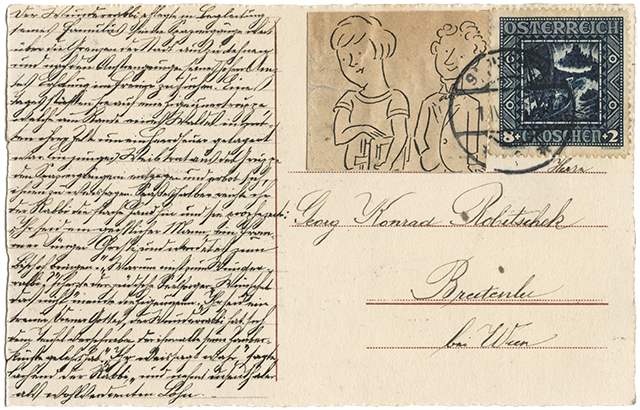 |

|
 |

|
 |
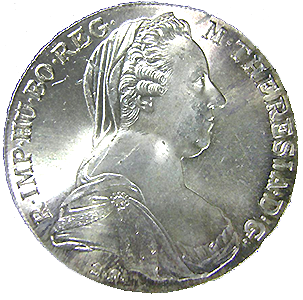
|
|
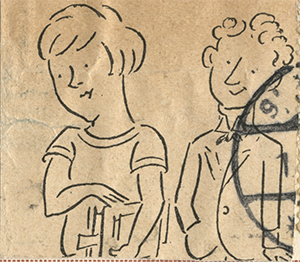
|
ON THE WORTH OF A THALER Eman is making a layered April Fool's jest and, believe it or not, "take this Thaler as a well deserved wage" is the punch line. To jive with the jest, you need to be one with the Thaler. The Thaler is the oldest coin in continuous circulation. It was first minted in 1741 to commemorate the ascension Empress Maria Theresa to the throne in 1740. It quickly became an important medium of trade because of the substantial amount of silver it contains and was minted outside Austria where it acquired a life of it's own. |
|
In 1857, Emperor Franz Joseph declared the Thaler to be an official trade coinage and in 1858 it ceased to be coin of the realm in Austria, though it persisted in usage there as a trading currency. In 1903, following the German language spelling reform of 1901, the spelling of "Thaler" was changed to "Taler", but Eman deliberately uses the old spelling to remind his readers of it's relation to society and the state. Jews, Gypsies and the Thaler all have one thing in common. They have all been shunted aside by Austrian society and the state, but continue to be tolerated. On another level, when Franz Joseph abandoned the Thaler, it was because the Austrian Empire could no longer afford to underwrite it's value or guarantee it's redemption. So, in a sense, he was acknowledging the fact that the Empire was loosing it's preeminent status in the world. It, too, was being shunted aside. It, too, was being shunted aside. The Gypsy thinks that the Wunderrabbi is a Catholic priest or seminary student, and flatters him accordingly. When tested, she denigrates the Jews, but the Wunderrabbi does not contest her evident prejudice. As the Catholic who she perceives, he acts the Catholic and gives her a "Thaler," a debased currency suitable for a lower class of marginalized people. But as the Jew who understands her position all too well, he plays the Jew and gives her a very valuable "Thaler", which gives her the economic freedom to operate anywhere in central Europe, Turkey or the Middle East. Of course, in doing so, he is also recognizing his own position as a Jew. It's April Fools Day, and the joke is also on him. What a sneaky punch line; knocked cold and you didn't even know it. |
|

|
 |
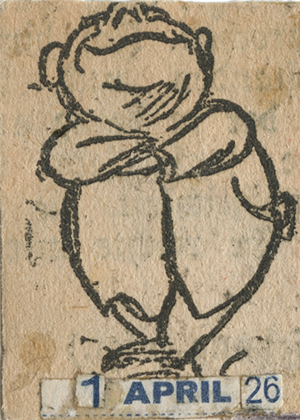
|
xxx Last revised 18 MAR 2014 |

|
 |
|
©2013-2014 by Charles M. Nelson All rights reserved. |